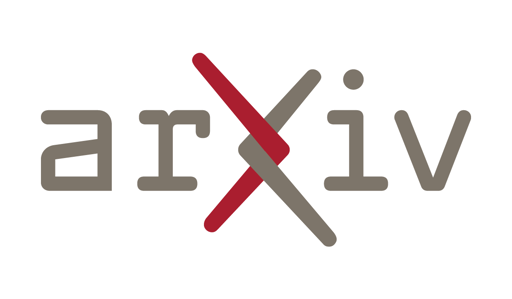American attitudes about AI today mirror poll answers about the rise of the internet in the '90s
-
Yes, I think people define themselves by their roles, especially men
That's a sign of toxic culture, not of men wanting to be defined by what value they can bring.
-
I think there is no possible world where people are without meaningful work and are happy about it. Even if they collected $10,000 a month and got to spend all of their time doing hobbies and spending time with family, it would feel pointless and hollow. Why have a family? Why raise children? Why do anything if there's no struggle, if you're not the one providing for your kids? I think if AI replaces humans in the workplace, even with UBI, humans would cease to exist shortly thereafter as our lives will have become meaningless
I think there is no possible world where people are without meaningful work and are happy about it.
-->
Even if they collected $10,000 a month and got to spend all of their time doing hobbies and spending time with family, it would feel pointless and hollow.
What is the difference between "hobby" and "work" if not what random people decide what is better monetised?
Both is labour & value added.
In a world where everyone gets enough money people could do what they actually want. So a CEO wouldn't be "stuck" being a CEO if they don't like that job & would rather be eg a baker. In the current system bcs of a huge pay divergence you get an unhappy CEO (who ofc won't quit) and an unhappy baker that just couldn't get a more suited paying job.
But we as a society would get a lot more out of life & cultural progression if people would be happy & satisfied at what they do (job=hobby).
Empirical evidence (even USA did extensive tests in the 60s) show that given a universal income (so basically no scarcity) basically nobody just sits around watching TV all day, everyone is productive (research, art, services, etc).
Imagine only having customer support or food industry workers that truly enjoy their job & want to do it.
How many prodigies are stuck at random dead end jobs with no prospects and life options?Labour is what we all benefit from.
Work is what the employer/owner benefits from. -
Yes, I think people define themselves by their roles, especially men
Even if so - the definition of oneself is what that person gets paid for, not what that person enjoys doing (or even is just good at)?
(Especially with jobs, folk on LinkedIn will describe their job as anything but their actual everyday job, or lie/exaggerate about their job when with other people - so not even that "role" is true.)
... like, lmao, except if it's like a weird grinding kink or something.
-
That's a sign of toxic culture, not of men wanting to be defined by what value they can bring.
*monetary value
(in relation to toxic culture)(bcs value that people actuality bring to society often isn't fairly valued in terms of money or even not at all)
-
Yes, I think people define themselves by their roles, especially men
You have a very limited view of what life should, or even can be.
-
This post did not contain any content.

American attitudes about AI today mirror poll answers about the rise of the internet in the '90s
Artificial intelligence chat tools like OpenAI’s ChatGPT, Google’s Gemini and Microsoft’s Copilot have achieved significant public adoption, according to the latest NBC News Decision Desk Poll powered by SurveyMonkey.

NBC News (www.nbcnews.com)
Nothing like comparing a technology that took more than 10 years to get "released in the wild" and had several "killer apps" built using it very early on (email, instant messaging, web pages, online games) and many companies had no idea how to get money with it, vs. a "content generator" that is run almost entirely on promises of increased productivity and profit.
-
That's a sign of toxic culture, not of men wanting to be defined by what value they can bring.
No it's biology
-
You have a very limited view of what life should, or even can be.
It's not a normative statement. I don't necessarily think it's good. I just don't think people can be happy being useless
-
Ah yes 1998, the last year before Matrix.
Huh I thought matrix was pretty new, and people used irc back then.
-
Yeah, but internet was for the people for decades.
(And it didn't really cost nature as much. Or stolen from the people so much - even by current laws LLM companies do that illegally.)"AIs" are getting their enshitification & monopolies pre-baked into their core bossiness models from the start.
Not to mention that AIs will definitely worsen inequalities all over the world (like assembly robots that replaced people but aren't owned by people, and people still need to work 8h/day for decades for some reason).

(This but AI. I'm not saying, there aren't/won't be other jobs, just pointing out how this reshapes & concentrates wealth that on the other hands allows for slave wages with no prospects for full time jobs.)
If AIs will affect the world as much as the internet (and do so with peoples data), then they should be seen as core infrastructure - and government or non-profit owned.
Monetisation of all the things is killing us.
Also the AI could automate away that man's hobby...
-
It's not a normative statement. I don't necessarily think it's good. I just don't think people can be happy being useless
You said people yearn for "the workplace"
-
You said people yearn for "the workplace"
No I didn't
-
This post did not contain any content.

American attitudes about AI today mirror poll answers about the rise of the internet in the '90s
Artificial intelligence chat tools like OpenAI’s ChatGPT, Google’s Gemini and Microsoft’s Copilot have achieved significant public adoption, according to the latest NBC News Decision Desk Poll powered by SurveyMonkey.

NBC News (www.nbcnews.com)
The two aren't equivalent. One of them is an actual proven technology that definitively exists, the other one is still to prove itself.
-
No I didn't
I was paraphrasing and trying to be nice. Fine, you didn't say humans yearn for the workplace. You said humans existentially require the workplace.
I think if AI replaces humans in the workplace, even with UBI, humans would cease to exist shortly thereafter as our lives will have become meaningless
-
I think there is no possible world where people are without meaningful work and are happy about it. Even if they collected $10,000 a month and got to spend all of their time doing hobbies and spending time with family, it would feel pointless and hollow. Why have a family? Why raise children? Why do anything if there's no struggle, if you're not the one providing for your kids? I think if AI replaces humans in the workplace, even with UBI, humans would cease to exist shortly thereafter as our lives will have become meaningless
Okay let's do an experiment.
Get some annoying trust fund kid, take all their money away from them, and tell them that they now have to get a job but it's a good thing because now their life has meaning. Let's see how happy they are about it.
-
-
-
NO KINGS! Tomorrow on Trump's birthday, we protest across the entire nation. Check the website for No Kings events near you!
Technology 2
2
-
The Current System of Online Advertising has Been Ruled Illegal by The Belgian Court of Appeal. Advertising itself is Still Allowed, but not in a Way That Secretly Tracks Everyone’s Behavior.
Technology 1
1
-
-
-
-



